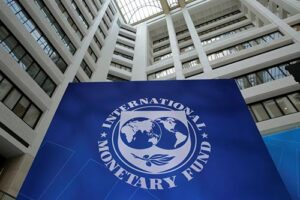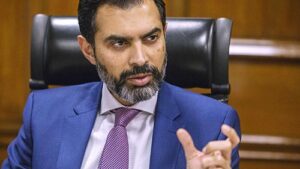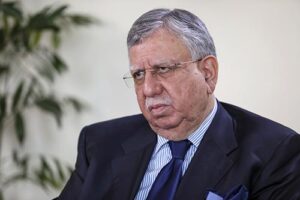After long, agonising delays, Pakistan finally managed to secure the staff-level agreement with the International Monetary Fund (IMF), heralding tougher days for Pakistanis and eroding the country’s economic and financial sovereignty further.
The IMF announced the agreement in an unusually lengthy three-page statement on November 22. The Advisor to the Prime Minister on Finance and Revenue, Shaukat Tarin, appeared to be struggling while defending its tough terms at a press conference and without naming, his predecessor, indirectly passed on the responsibility of cutting a bad deal for Pakistan on former finance adviser, Dr. Hafeez Sheikh, and the current Governor of the State Bank of Pakistan (SBP), Dr. Reza Baqir.
Tarin said that he was forced to pick up the threads of the economy from where it was left in March-April, with a commitment to withdraw Rs. 700 billion in tax exemptions, increase the electricity tariff by Rs. 4.95 per unit and give autonomy to the SBP in contravention of the constitutional provisions.
As a consequence of the deal, Pakistan will now have to raise the levy on petroleum products by Rs. 4.0 per litre on a monthly basis until it hits Rs. 30 per litre, abolish Rs. 350 billion worth of general sales tax exemptions through a mini-budget, grant a contentious autonomy to the SBP, slash the Public Sector Development Programme by Rs. 200 billion to Rs. 700 billion, and audit the COVID-19 funds.
The IMF’s announcement came a couple of days after the SBP, under the watch of its controversial Governor Reza Baqir — seen as the IMF’s man in Pakistan — raised the interest rates by 150 basis points to 8.75 percent.
While the release of the IMF’s tranche of $1.06 billion after its board’s approval under the Extended Fund Facility (EFF), expected sometime in the second week of January 2022, will help Pakistan secure funding from multilateral and bilateral sources and go to the international capital debt markets to float bonds at slightly better yields, there are troubling near-to long-term negative implications both for the state of Pakistan as well as its people.

Galloping inflation, a continuing steep rise in electricity, gas and fuel prices, volatility and uncertainty in the currency and capital markets, soaring public debt and a slowdown in economic activity are just one aspect of these troubles which will hit the common man hard.
The other troubling aspect concerns the state and its institutions. Under the IMF’s scheme of things — read the Western agenda — the government is being forced to give the SBP unprecedented autonomy through Parliament. No matter how Tarin tries to understate the consequences of this move, the fact is that the country’s central bank will no longer be answerable and accountable to the state of Pakistan, but will be acting on the biddings of the multilateral financial institutions and serving their agendas.
Never before in any IMF programme, has the SBP’s so-called autonomy been pushed like this, given the fact that the central bank already enjoys independence and has remained one of Pakistan’s strongest and most effective regulatory institutions. But under Reza Baqir, the SBP has not just become controversial for toeing the foreign agenda, but the IMF is attempting to transform it into one of its outposts.
Will the Parliament be able to defend and protect Pakistan’s interests and halt the push to grant unprecedented autonomy to the SBP — which is not enjoyed by a central bank in any developing country — remains a critical question.
This is all the more important at a time when mounting public debt and its interest and repayments — in which currency devaluation and high interest rates played a key part — will force the country to allocate money for its defence budget through borrowed money.
The foundations of this debt trap were laid in the days of the last Pakistan People’s Party (PPP) government which came to power in 2008, and were built upon by the Pakistan Muslim League-Nawaz (PML-N) government, after assuming power in 2013.
Prime Minister Imran Khan is right in blaming both the PPP and the PML-N for the economic troubles of Pakistan. However, in the last three years, even his government has failed to address the structural issues of the country’s economy which continues to slide downhill.
For starters, the Prime Minister failed to appoint a non-controversial economic team. Perhaps his worst choice remains that of the SBP governor, who was a mid-level IMF official serving as the country head in Egypt. There too, his role remained controversial. In the past too, Pakistan brought in SBP governors from multinational institutions several times but they all held senior positions and no one triggered the kind of controversy that Dr. Reza Baqir did. The responsibility of this wrong choice rests solely on the shoulders of Prime Minister Imran Khan.


Additionally, the PTI government has failed to implement its reform agenda. There have been no notable reforms in the energy sector, barring the increase in the prices of electricity, gas and petroleum. Further, the government has failed to push the privatisation programme or cut the losses in the state-run institutions. It remained in a fire-fighting mode and stuck to the tried, tested and failed methods to fix the economy.
What’s more, despite being a poor country, the foreign exchange regime remains liberalised and the elite want to earn in rupees and spend in dollars, including buying properties in Dubai, the United Kingdom and the United States.
To top it all, the PTI government instead of coming up with home grown-solutions, got hijacked, on the one hand, by the “old boys club” of economic wizards, and on the other by the “rich boys club” of wheelers and dealers. If the old boys club fails to grasp the new realities of Pakistan, the rich boys club only seek concessions and deals from the government.
The entire decaying, rotten system is aimed at serving the interests of the elite rather than the country and its people. It is fast losing its ability even to protect the core national interests, let alone take care of the well-being of the people. The country has become a hostage to the dictates of institutions like the IMF and the World Bank, and its western patrons, who want to push Pakistan in a certain direction. The IMF conditions are more about geo-politics than the economy. And Pakistan has been economically weakened to an extent where it has no other option left but to kowtow to foreign dictates.
Unfortunately, the ruling elite does not appear to have Pakistan’s economic sovereignty on its agenda. It is business as usual for them — on borrowed money, which is coming in at the high cost of the country’s national security and sovereignty.
Prime Minister Imran Khan may give ‘earnest’ sermons on establishing an Islamic Welfare State or a ‘Riyasat-e-Madina,’ but the road to these destinations does not pass through the gates of the IMF and the World Bank.
Pakistan needs to take tough, home-grown decisions to fix the rot on a war-footing. This includes curbing imports, restricting outflow of foreign exchange under the liberalised currency regime, getting rid of economic hitmen imposed by foreign powers on key positions in Pakistan, including the SBP, and finally introducing sweeping energy sector reforms and fixing the bleeding state-run institutions. If the government fails to do this, Pakistan will keep going to the IMF for a new programme each time. We have run through 22 programmes since Independence, but not one has been able to fix the economy. It is time to look beyond the IMF and eventually say ‘No’ to it. Pakistan has to win back its freedom from the yoke of the international establishment.



